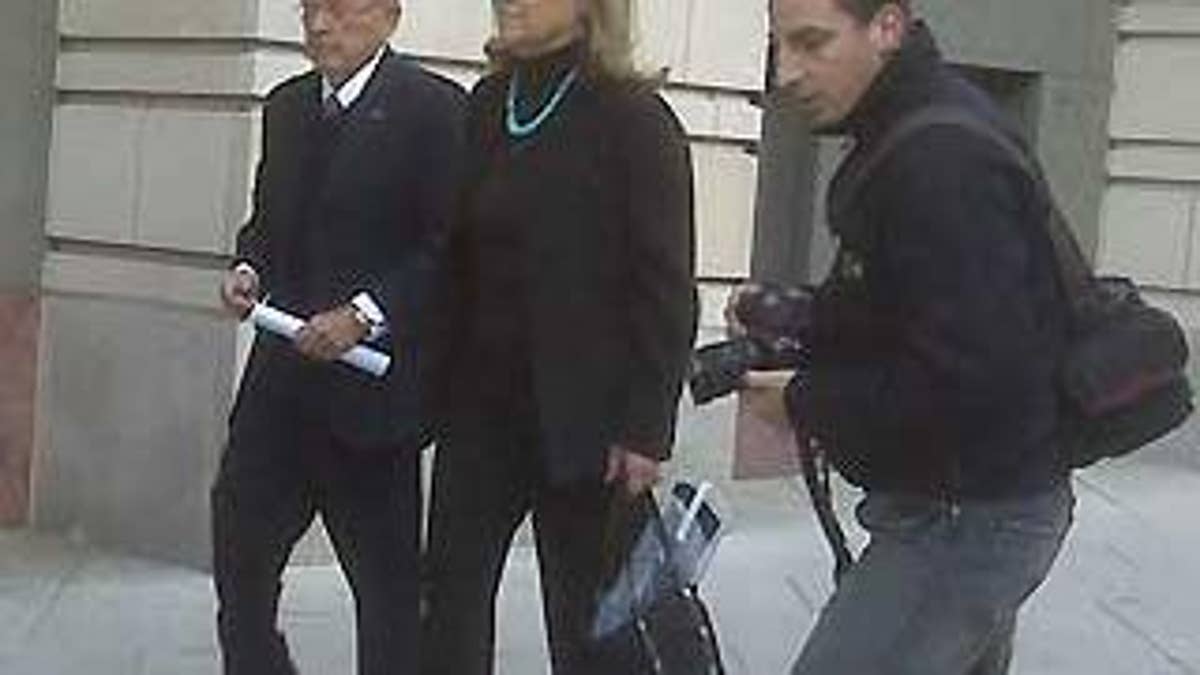
The federal judge presiding over the now-dismissed corruption case of former Senator Ted Stevens blasted the Justice Department on Tuesday for its "shocking" conduct, announcing a criminal investigation into six federal prosecutors. But it's not the first time this past week that he's threatened Justice Department prosecutors with legal consequences for their conduct.
In fact, litigation attorneys and a current Justice Department official say the judge's outrage with what he called the "mishandling" of the Stevens case could impact his dealings with prosecutors on other federal cases.
"Judges don't hear cases in a vacuum," said Tom Dupree, an attorney in Washington who was a top-ranking Justice Department official until January. "A judge's interaction with government lawyers in one case could certainly impact how he regards government lawyers in another case, even in situations where the cases arise in different contexts or present different issues."
U.S. District Judge Emmet Sullivan on Tuesday dismissed the case against Stevens, whose conviction on seven counts of public corruption five months ago was followed by repeated accusations of prosecutorial misconduct. Throughout the trial and post-verdict proceedings, Sullivan has also been presiding over the case of Ayman Batarfi, a Guantanamo Bay detainee from Yemen challenging his detention.
The government's case against Batarfi relies on statements from another detainee, who it turns out has repeatedly received psychiatric treatment, calling his credibility into question. A month ago, after it became clear Batarfi's defense team was not informed of the other detainee's medical history, Sullivan ordered the government to turn over all medical records to the defense.
According to court documents, Sullivan directed the government to explain "why the Government and its attorneys should not be held in contempt of court" for failing to comply with court orders that could help shed light on Batarfi, a doctor accused by the Justice Department of being a Taliban or Al Qaeda member.
"To hide relevant and exculpatory evidence from counsel and from the court under any circumstances, particularly here where there is no other means to discover this information and where the stakes are so very high ... is fundamentally unjust, outrageous and will not be tolerated," Sullivan said during a hearing last week, according to the McClatchy newspaper service. "I'll tell you quite frankly if I have to start incarcerating people to get my point across I'm going to start at the top."
The judge is still deciding whether to find government lawyers in contempt of court. If he does, they could each face a fine or imprisonment until they comply with Sullivan's order.
Two weeks ago the Justice Department announced plans to release Batarfi, assuming it could find a country to take him. The Justice Department has asked Sullivan to halt legal proceedings in the case.
A Justice Department official said it's unclear whether the aftermath of the Stevens prosecution could impact Bartarfi's case, but the official acknowledged that Sullivan is "angry with us" for the handling of the Stevens case.
Clive Stafford Smith, whose London-based organization Reprieve is helping to represent Batarfi in a number of legal matters, said he thought the Stevens case istelf wouldn't have any impact on how Sullivan deals with his client's case.
"I think [Sullivan] was hot on exculpatory evidence long before that in the Guantanamo Bay cases," Stafford said. "Judge Sullivan is a good judge, and has been good about ordering exculpatory evidence."
At the least, it's clear Sullivan wants the Stevens case to be an example to others.
"Whether you are a public official, a private citizen, or a Guantanamo Bay detainee, the proscecution -- indeed the U.S. government must produce exculpatory evidence so that justice shall be done," Sullivan said Tuesday, before dismissing the charges against Stevens, a Republican from Alaska. "The importance of these obligations cannot be overstated."
Sullivan had a message for his fellow judges, lawmakers, the Attorney General and even President Obama.
He urged his "judicial colleagues to be vigilant" and Attorney General Eric Holder to require training for new and veteran prosecutors across the country. Plus, he said, "I urge the president and the Attorney General, as they select new U.S. Attorneys, to obtain from those appointees their commitments to fulfilling these important obligations. And indeed the Senate confirmation process should also address these most improtant prosecutoroial obligations."
Asked whether Sullivan's views on the Stevens case could impact other cases such as Batarfi's, Justice Department spokesman Dean Boyd declined to comment.
The Justice Department insists prosecutors should not be found in contempt for failing to turn over medical records, noting that redacted versions of those medical records were "inadvertently" released in the first place.
"Contempt is an extraordinary [measure]," a government filing said last week. Prosecutors "have worked diligently and in good faith to produce information concerning credibility of the detainee-witness," the filing said. In fact, it said, the Justice Department has already turned over information that is "more explicit and far more helpful to [Batarfi's] case than the medical record issue."












































